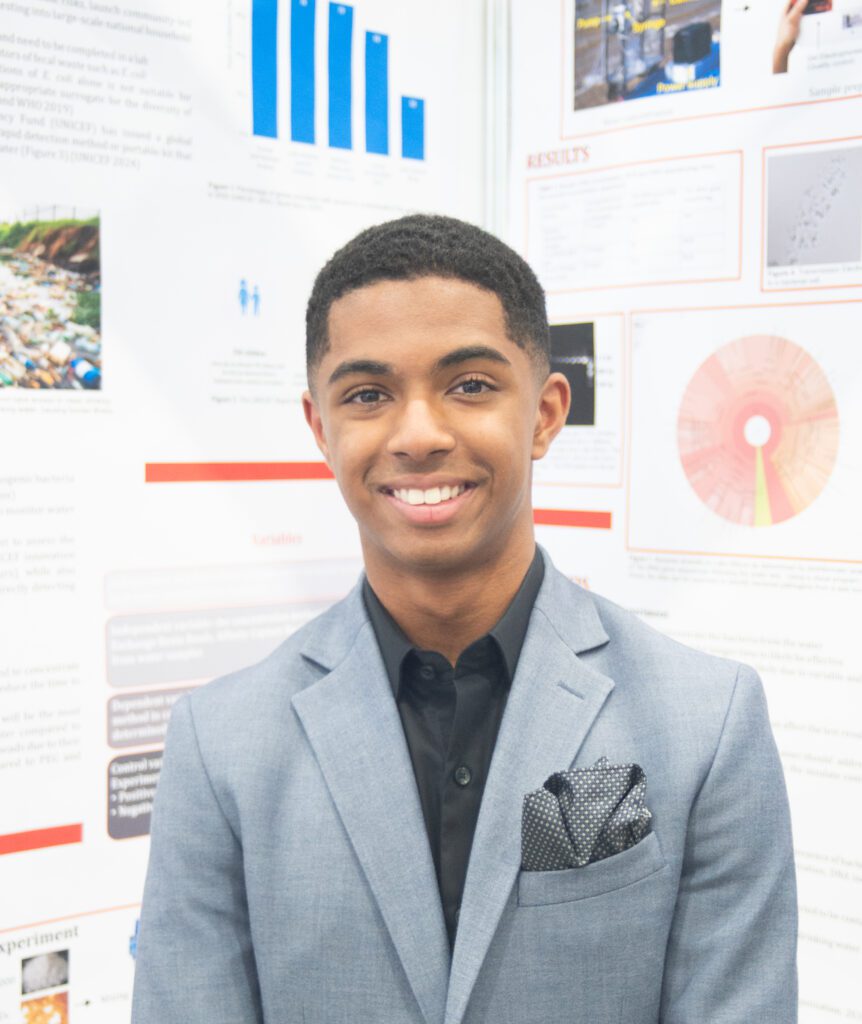
Noah Bryan
“Is the water safe to drink? The rapid test is the missing link!”
Bayview Secondary School in Richmond Hill, Ontario
Globally, contaminated drinking water causes 2.2 billion illnesses and 1 million deaths annually. Lack of access to clean water also leads to chronic health issues in children, such as stunting and malnutrition. Current water tests are time-consuming, require laboratory settings, and focus on detecting fecal indicator bacteria like Escherichia coli, which does not reliably indicate water safety. To address these gaps, I developed a field-based water testing approach using three portable devices: a water concentrator, a Bento Lab, and an Oxford Nanopore MinION handheld sequencer. In this method, ten liters of water are processed in the concentrator, where bacteria bind to paramagnetic affinity capture beads. After isolating the bead/bacteria complexes, bacterial DNA is extracted, amplified via polymerase chain reaction, and sequenced in real-time to identify all present bacteria, including pathogens. The test, performed at directly the water source, takes nine hours. Analysis of two Ontario lakes (Lake Wilcox and Guelph Lake) confirmed the presence of multiple pathogenic bacterial species, with two pathogens verified by culture based methods. This innovative test offers a potentially transformative solution to the global water contamination challenge.